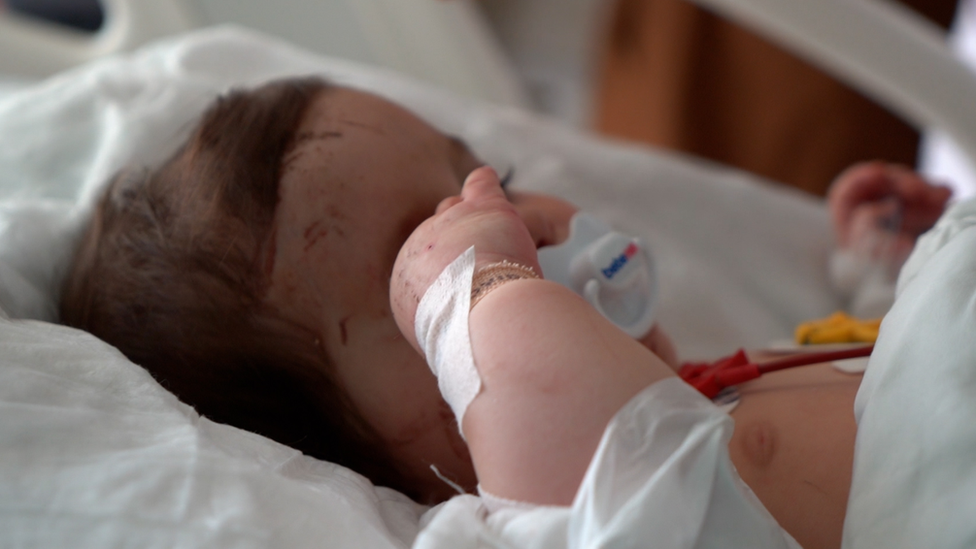Turkish earthquake: Survivors' haunting search for missing relatives
- Published
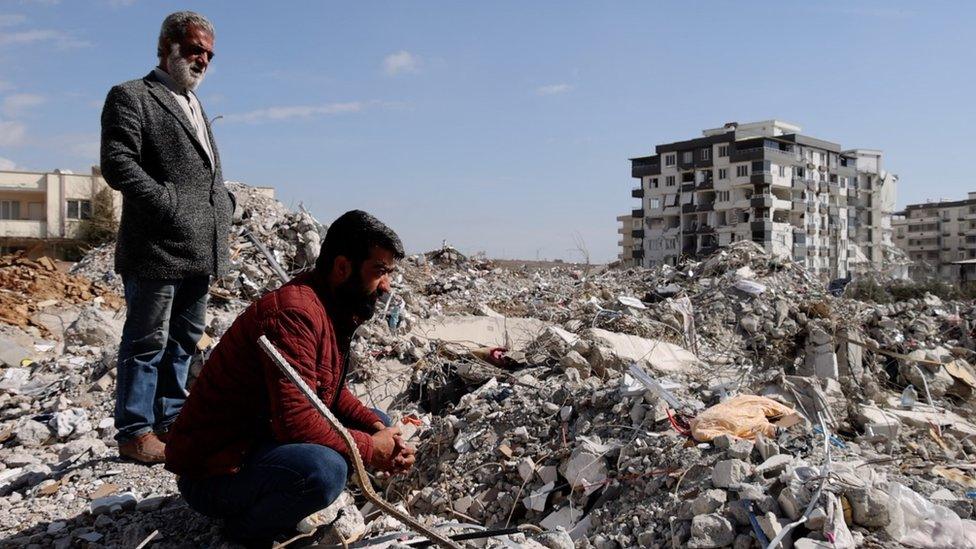
Orhan Kosker has not been able to find a trace of his two missing nephews in the rubble in Gaziantep
It has been seven weeks since two huge earthquakes hit Turkey and northern Syria, and Orhan Kosker has not stopped searching for his nephews.
Ismet and Sirac, aged 13 and nine, were asleep in their home in the south-eastern Turkish city of Gaziantep.
Their mother, father and sister were all killed in the quake. Their bodies were found nine days later, and removed from the rubble.
But there was no trace of the two boys.
Gaziantep was one of 11 Turkish cities that suffered widespread destruction on 6 February.
In Turkey alone 50,000 people have died. Almost 6,000 more lives were lost in northern and western areas of Syria.
For Turkey, the financial cost is estimated at more than $100bn (£81bn).
While mammoth efforts are being made to give quake victims some form of normality, there are still hundreds of families searching for their missing loved ones, hoping to find them either dead or alive.
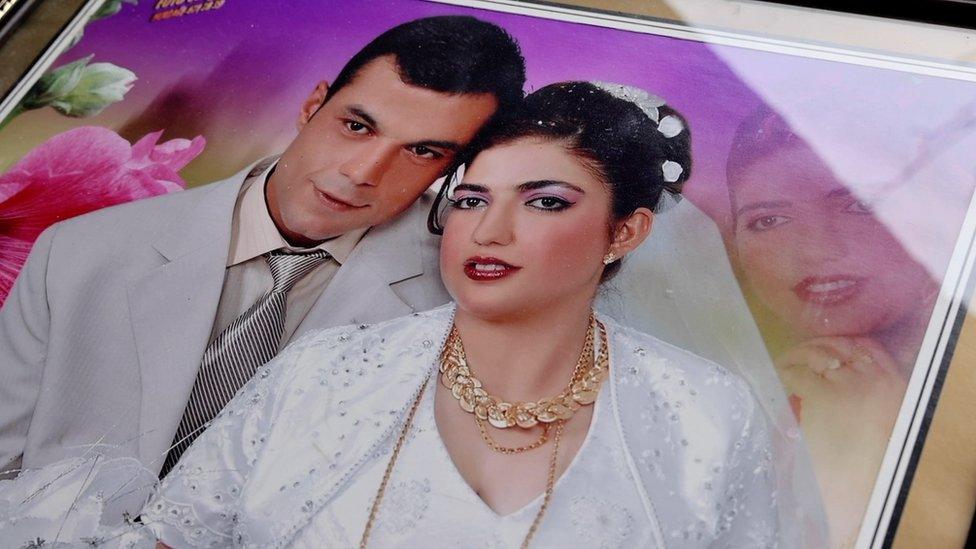
Ismet and Sirac's mother, father and sister were all killed in the earthquake
Eyewitnesses told Orhan that his nephews' building collapsed after a minute or two, and that many people had managed to escape. He was convinced the boys could have survived too.
Since the earthquakes, nearly 2,000 unaccompanied children have been rescued from under the rubble and registered with the authorities, according to official figures provided by the Ministry of Family and Social Affairs.
Almost 200 of them are yet to be identified and reunited with their relatives.
Turkey's health ministry has set up a helpline for quake victims and relatives of the missing.
Orhan said he called the helpline every day to check the list of recently identified children in case his nephews are on it. His family has also handed over DNA samples.
"We want to find our children even if they're dead. Even if it's just their bones we find, we will carry on searching. May God help us," he said.
There is no official figure for the number of missing people across Turkey following the earthquakes. But it is believed that at least 1,400 bodies are yet to be identified.
For Abdulkudus Kazan, the search for her sister Hicran has been overwhelming.
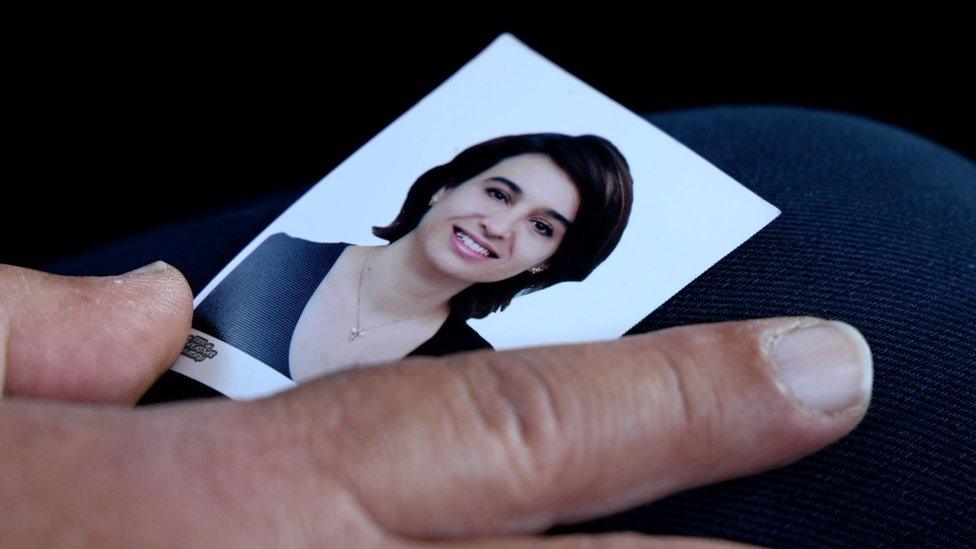
Hicran Karadag's death certificate said her body was left out in the open for two days
Hicran Karadag, 44, was rescued from under the wreckage of her apartment within hours of the earthquake. She was taken to hospital by ambulance, but for the next month her family were unable to find out whether she was alive or dead.
They searched for her across dozens of cities.
Finally they received a tip-off that almost 1,000 victims of the quakes had been buried at a cemetery in Narlica, just outside the city of Antakya.
Abdulkudus travelled to the newly built site, a mass grave of the missing victims.
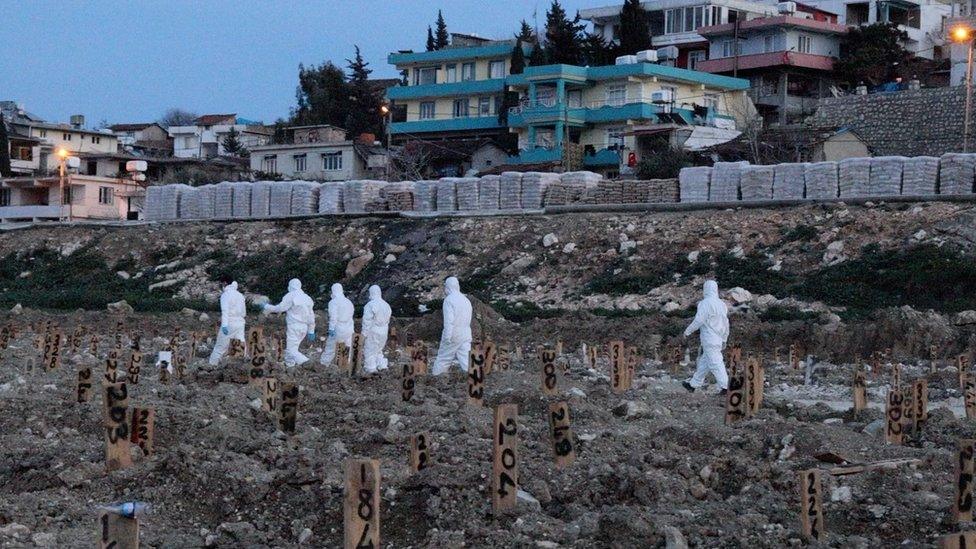
There is no official figure of missing in Turkey following the two earthquakes
Before unidentified bodies were buried at the cemetery, Turkish authorities had taken photographs, collected DNA samples and taken fingerprints. Each unidentified victim had a number on their grave.
Abdulkudus went through some 1,500 photographs in search of his sister. She even opened body bags and checking corpses to see if Hicran was there.
It was with tears of relief as much as sorrow that she learned that a DNA sample taken at the site matched a body that had been buried at the cemetery.
The death certificate showed that Hicran had lost her life as a result of cardiovascular arrest due to body and head trauma. It was not clear whether or not she had received any treatment at the hospital.
However, the certificate mentioned that her body had been left out in the open in a carpark at the field hospital for two days. She was then buried without proper identification.
"It is very difficult to search for your missing relative," said her sister.
"You don't know whether they are dead or alive, so you always have hope.
"Even when the officials told me the DNA samples matched, I was still hoping they might be wrong, that my sister could be alive. Now I'm just relieved that she has a grave of her own."
Related topics
- Published10 February 2023
